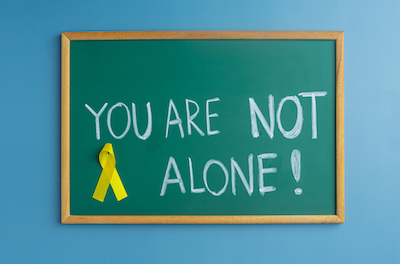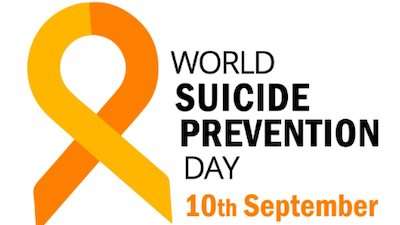World Suicide Prevention Day Tips from CAPS: Call or text Suicide & Crisis Lifeline at 988
By University Counselor Patricia Dixon
As the fall semester takes off, it can be a difficult process to refocus and maintain balance. Adjusting to the demands of a new semester, adjusting to a new schedule, learning what a hybrid model means, and nonstop news cycles that warn of issues in the world all challenge our ability to pay attention to self-care. Tending to mental health needs for yourself and others can be overwhelming.
CAPS is here to help!
We often feel like suggestions for self-care hit us from every direction. Many times those suggestions seem obvious.
The National Council for Mental Well-being defines mental well-being as thriving regardless of a mental health or substance use challenge, representing resilience, strength and recovery. Mental well-being is about understanding and caring for your thoughts, feelings and actions. This can look different for each person.
| Physical Health | Mental Health |
| Eat a balanced diet with various fruits and vegetables. | Connect with loved ones and those in your community for emotional support. Even a phone or video call can be beneficial! |
| Participate in 30 minutes of physical activity that you enjoy every day, such as walking or yoga. | Participate in 30 minutes of physical activity that you enjoy every day, such as walking or yoga. |
| Get the appropriate amount of sleep each night. For adults, seven to nine hours is recommended. | Get the appropriate amount of sleep each night. For adults, seven to nine hours is recommended. |
| Maintain proper hygiene, including brushing your teeth and showering regularly. | Practice gratitude by naming at least one small thing that you are grateful for each day. |
| Moderate use of substances such as tobacco and alcohol. Try reaching out to family or friends instead of using substances when you are going through a tough time. | Take 15-20 minutes a day to relax by meditating, journaling or doing breathing exercises. |
The Substance Abuse and Mental Health Services Administration reports that about 18% of adults 18 years or older experience a mental health or substance use challenge each year.
Simple things to say to check in with those around you
Be direct and open when you check in with someone. Engage the person by being with them. Sit alongside them. Speak in a firm voice. Always ask permission to help and respect cultural differences. Phrases to use:
"Are you okay?
"I've noticed that….."
"Do you want to take a walk?"
"How are you ... really?"
"Are you thinking of suicide?"
Creating hope through action - be the light!
Saturday, Sept. 10 is World Suicide Prevention Day. Maybe you are aware of someone struggling with thoughts of suicide. If you or someone you know is experiencing difficult thoughts, help is just three numbers away: Call or text 988.
Signs that someone may be suicidal
- Threatening to hurt or kill themselves.
- Looking for ways to kill themselves.
- Talking or writing about death, dying or suicide.
- Rage, anger or seeking revenge.
- Feeling trapped, like there's no way out.
- Increasing alcohol or drug use.
- Withdrawing from friends, family or society.
- Anxiety, agitation, unable to sleep or sleeping all the time.
- Dramatic changes in mood.
- No reason for living, no sense of purpose in life.
(People may show one or many of these signs, and some may show signs not listed.)
Resources
Working out boosts brain health
Self-care has never been more important
12 ways to take better care of yourself
What is self-care and why is it so important for your health?
Eating during COVID-19: Improve your mood and lower stress
Depression rates have tripled during the pandemic - how to recognize the signs and respond to them
Geting started with CAPS
If it's Monday-Friday between 8:30 a.m.-5 p.m., call the main CAPS line at 313-577-3398 or visit caps.wayne.edu and complete the initial consultation form. WSU Applebaum students can reach out to CAPS directly by calling 313-577-3243, visiting caps.wayne.edu and completing the initial consultation form (noting that you are an EACPHS student) or emailing PatriciaDixon@wayne.edu.
If you need help after hours or on the weekend, call CAPS at 313-577-9982.
In addition to individual services, CAPS offers a variety of groups to support students. To join a group, complete an initial consultation at caps.wayne.edu.
WSU Applebaum offers dedicated Counseling and Psychological Services support to students on a group or individual basis. To get started, visit caps.wayne.edu and complete the initial consultation form, making sure to note that you are an EACPHS student.